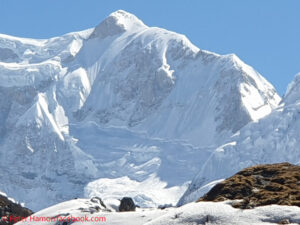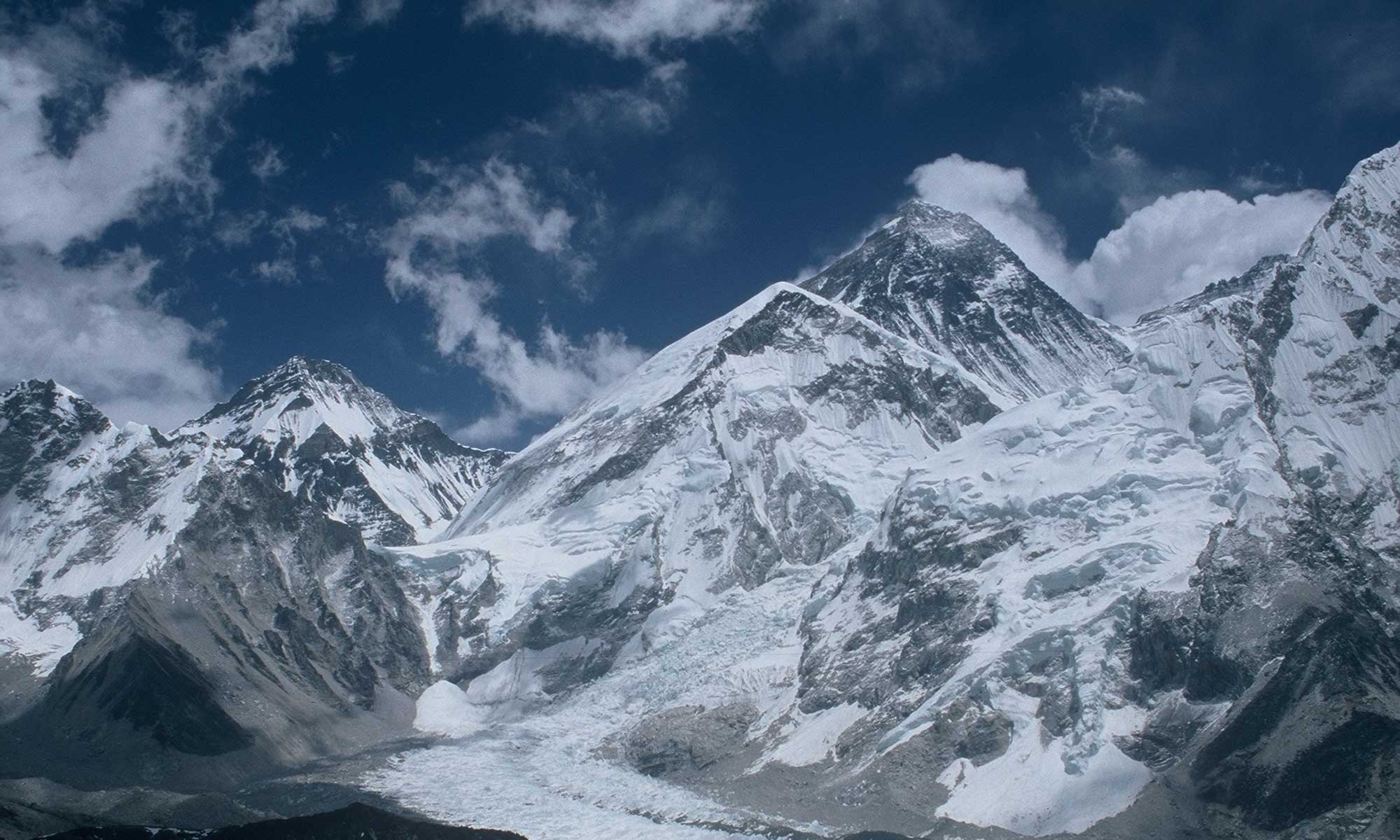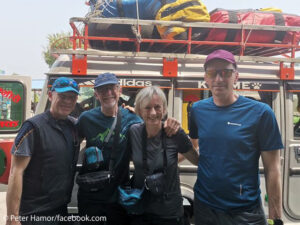
They still exist, the ambitious alpinistic projects in the Himalayas, although rarely on the eight-thousanders. Last Friday, the Slovak Peter Hamor, the Slovenian Bojan Jan and the Italian couple Nives Meroi and Romano Benet climbed for the first time the West Face of the 7,318-meter-high Kabru South – “on a new route, without bottled oxygen, without Sherpa support, without high camps, without fixed ropes,” in other words in alpine style, as Hamor’s wife Maria reported from base camp. “Fortunately, the weather improved on the last day (of the climb), and the wind died down.” We’re sure to hear more details in the coming days.
Second ascent of Kabru South
The south summit of the Kabru massif, located far to the east of Nepal near the 8,586-meter-high Kangchenjunga, had been reached only once before: in 1994 by members of an Indian military expedition who had ascended to the north summit (7,395 m) and then continued to the south summit via the middle summit (7,353 m). In 2004, a Serbian team had tried the West Face of Kabru South for the first time, but had given up – after several avalanches and a fall of the expedition leader Dragan Jacimovic, in which he injured his shoulder.
Three veterans, one novice
While it was the first mountain adventure in Nepal for Bojan Jan, Peter Hamor, Nives Meroi and Romano Benet are among the veterans in Himalayan mountaineering. All three completed their collections of the 14 eight-thousanders in 2017 – although on Manaslu they did not reach the “True Summit“, but a preceding elevation on the summit ridge. Meroi and Benet were always on the move in a small team without Sherpa support and did without bottled oxygen, Hamor only resorted to a breathing mask on Mount Everest. Meanwhile, Meroi and Benet are 61 years old, Hamor 58. And they are looking for adventures beyond the mainstream.
“Exploring and discovering”
“High altitude mountaineering in the Himalayas is by no means just about climbing seven popular eight-thousanders or a few lower peaks on secured normal routes. Even after more than seventy years, there are still quite a few places in the Nepalese Himalaya that we know little or nothing about,” Peter Hamor wrote on Facebook before leaving for Nepal. “The most important and beautiful thing about mountaineering is exploring and discovering, seeking and exceeding one’s limits in the company of good friends.” It’s hard to put it better than that.
P.S. Meanwhile, more success stories of commercial teams from Mount Everest and the neighboring Lhotse are arriving. Today, for example, the two Pakistani women Naila Kiani (led by Pasang Temba Sherpa) and Nadia Azad (led by Pemba Chhiri Sherpa) reached the summit of Lhotse – with bottled oxygen – after standing on Everest on Sunday. In mid-April, the two Pakistanis had also scaled Annapurna in the same style.

